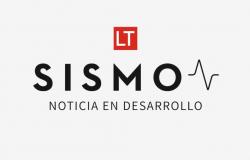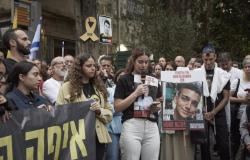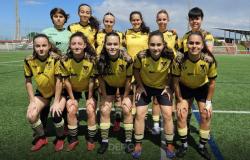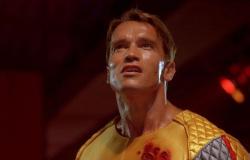Venezuela will celebrate on May 25 some controversial elections in which new governors, mayors and deputies for the National Assembly will be elected. An unprecedented day for the amount of positions that will be voted and, again, controversy because the country does not yet exceed the nth crisis unleashed after the presidential ones on July 28: Maduro retained the presidency despite the fact that the opposition claimed Victoria and showed some records that prove it -how the government did not do; The rival candidate, Edmundo González, is exiled in Spain; The opposition leader, María Corina Machado, remains hidden for security reasons and hundreds of political prisoners remain in Venezuelan prisons.
With this political climate and without changes in the National Electoral Council (CNE) or on the participation of international observers, the tesiture in the opposition has been, once again, to go to the polls or refrain. Machado and González have defended the second option and have labeled “unforgivable” that some leaders have presented and ask for the participation of Venezuelans.
Among those politicians is Henrique Capriles Radonski (Caracas, 52 years old). The former presidential and former governor of the State of Miranda will be a candidate again after the Chavista justice disables it in 2017 for 15 years. The leader admits that he was surprised to verify that he was enabled again and ensures emphatically during the interview, held on Friday by videoconference, which was not part of a negotiation in exchange for participating in elections that validate the government after the crisis last year.
Ask. You have maintained that Maduro stole the elections on July 28.
Answer. Absolutely. Even the stones in Venezuela know that Maduro stole the elections.
P. Why vote then on May 25 and endorse elections if the conditions have not changed?
R. With the vote you do not recognize the dictatorship or the legitimate. Millions of Venezuelans elected Edmundo González on July 28. Today in Miraflores he should be and not Nicolás Maduro. For me, the vote in Venezuela is an expression of resistance, of resilience, that we do not give up.
P. But how do you tell people to vote if the result is not going to respect?
R. Because I think it will always be worse for the regime having to steal the result. The opposition has already used abstention as a way of doing politics and in the end is nothing. What can you build from abstention? All you do is facilitate things to the government. Maduro is happy again with this debate between voting and not voting, but I assure you that quiet is not. He is in power, but quiet not, because he knows that his electoral base has been very diminished.
P. Do you feel there will be reliable results?
R. Are you going to make a copy of July 28? Don’t know. What I do know is that he is much more upholed to have to say that the opposition did not want to participate. For me, politics is action and abstention is inaction. The election as a political fact generates other political facts. In addition, it is the land where the government is weaker and has shown us in all these years. The government has so far maintained the call for the elections, has played with the dates, but has maintained them. It is likely to want to end the elections as planned today in the Constitution, so he proposes to change it. How do you tell people not to vote now and do it for constitutional reform that will be very, very, very soon?
P. After the July 28 elections, Edmundo González is exiled; María Corina Machado, sheltered and there are still hundreds of political prisoners. Can you go to an choice in these conditions?
R. I believe that what is going to be able to tear the game is that we try to look for politics to return. Because if politics does not return, the government gets into its trench.
P. That already happened on July 28.
R. There was something that was not achieved. We thought that an electoral beating was going to open a negotiation door, but that door did not open. We believed that the election was going to resolve the political conflict in Venezuela and did not solve it.
P. What would you have done different before, during and after July 28?
R. I would not like to say it because it is very easy to come now to say: ‘I would have done this.’ What needs to be done is to remember that the unit was formed to seek a peaceful political change. We do not believe in force solutions, even if some talk about them. when in 2014 they convened the departure, with Leopoldo López in front, it was out of the unit. What did that failure mean? He strengthened the Maduro government, weakened the democratic opposition. The 2015 Assembly won because there was a perfect unit. After all the 2017 street protests, to which we all went, a choice came and there were colleagues who said that one could not go, so that we did not present ourselves to the 2018 presidential election. We gave Maduro six years. Then, the interim government came in 2019. That fantasy again generates an internal fracture of the opposition, because it was not institutional. How many times we said that Maduro was illegitimate and, nevertheless, the expectation generated by Edmundo himself is that Maduro was going to deliver the band. Where was it going to be swear? In the assembly that Jorge Rodríguez chairs and that you said you did not recognize. The contradictions end up being very expensive for the democratic opposition itself. We cannot depart from who we are. It is mature who turned away from democracy, which violates the Constitution. The game is struck. Maduro in power, Edmundo González in Madrid. What do Venezuelans do? Do we fall into hopelessness, resignation or do we continue looking for where to express the voice of the majority?
P. Edmundo González did not exile for pleasure. The game has been struck for many years. How long can it endure?
R. The government would have been quieter if Edmundo had not been a candidate, if María Corina, disabled, would have said: ‘We are not going to the elections.’ If I were María Corina or Edmundo, I would summon people again to vote. This is the vote as an instrument of struggle. If María Corina and Edmundo say today “Return faces”, they will vote, Maduro does not make the May 25 elections. Maduro waited for María Corina to come out to say that Venezuelans should not vote to convene the election and to put the election of the National Assembly with that of governors and mayors. The inauguration of the National Assembly is in January next year and Maduro makes the election right because the opposition was going to step on the combs of abstention.
P. Most surveys continue to give Machado as the most supported leader, has more popularity and support percentage than you, for example. Why not continue trusting a little more in your strategy?
R. There is the error. In politics rather than following people, ideas and proposals must be followed. If you promote abstention, explain to people what they are going to do the next day. It is as if he tells me that we repeat with Edmundo González what we did with Guaidó. The problem was not only the person, but the political idea. I was leader of the unit, I never asked people loyalty or fanaticism towards my person. One thing is that people place you as a symbol, be fanatized and another thing is that you promote fanaticism.
P. His premise that Maduro should not give him anything is useful for political parties. They continue to work, they can be financed, but for people? What changes the reality of any Venezuelan that Henrique Capriles is parliamentary?
R. You have to put face to this election because governors, mayors, deputies are elected. It is not a referendum. It will always be better to have a Democrat in any position not to have it. I have no parliamentary vocation, but what is coming is an absolutely challenging constituent parliament, where many things of the future of the country will probably be discussed, such as a constitutional reform and I believe that I have to be there being the voice of those who have no voice, being the voice of the Venezuelan people who are a majority, that needs opposition and that needs to be defended in each institutional space that exists.
P. There is a general complaint that the opposition leadership left people who went out to protest against the results of July 28. What responsibility do you assume?
R. I did everything I could do to win on July 28, but I had no role in the María Corina campaign command. I was not the protagonist of July 28, nor did I want me to take off prominence from María Corina or Edmundo González. Rather I was always in the second, third or fourth row. It was not my responsibility. There is an opposition sector that has been investing resources for years to try to disqualify me. It must be that they are worried that rationality will take force again.
P. Are you still having open channels with the government?
R. After July 28, Maduro and those around him entered war mode. After this choice I will try to open channels to think that there can be negotiation processes in the future.
P. Do you still believe that it is easier to talk to the Rodríguez, Jorge and Delcy brothers, than with Diosdado Cabello?
R. Diosdado always seems to have an absolutely radical voice. And with me, a personal obsession product of his defeat in the elections of governors of 2008. And with the Rodriguez … In the end there is a dome that works in unison. Maduro’s negotiator has been Jorge Rodríguez, but it’s not because he is more cool, it’s because the dome works in unison
P. What have seemed Trump’s first 100 days compared to Venezuela?
P. Absolutely terrible. Grab people for their skin color, for a tattoo … that for your nationality you are suspicious and you end up in a jail in El Salvador is terrible. In addition, thinking again that applying a pressure policy to the economy will generate a break in Venezuela and it will mean the departure of Maduro from power is to reissue something that we have already lived and failed.
P. What do you think of Maduro’s defense of imprisoned migrants in El Salvador when in Venezuela there are hundreds of political prisoners?
R. He is embarrassing and the only thing he demonstrates is what caraetabla That is mature. It is a mockery that Maduro goes out to defend Venezuelan migrants when he is responsible for seven million Venezuelans being out of the country.
P. What do you think of the ambiguity of opposition leaders such as Guaidó, María Corina Machado or Leopoldo López before Trump and Bukele’s policies?
R. One is also ashamed of that. It is as if the boss were Trump. On El Salvador, it is known that there are some Venezuelans who have been involved in the Bukele government. It is embarrassing.
P. How do you value the role of former Spanish president José Luis Rodríguez Zapatero in Venezuela?
R. I know that he wanted to assume a profile, stay as a person who has a communication channel with the government. I do not judge that, I have had my differences with him and I have expressed them, but, in the end, everyone who wants to help Venezuela can find a solution is. I have asked President Zapatero for help for the release of political prisoners and Zapatero has taken the phone. He helped Edmundo González. Not recognizing it would be a meanness to which I do not lend me.






